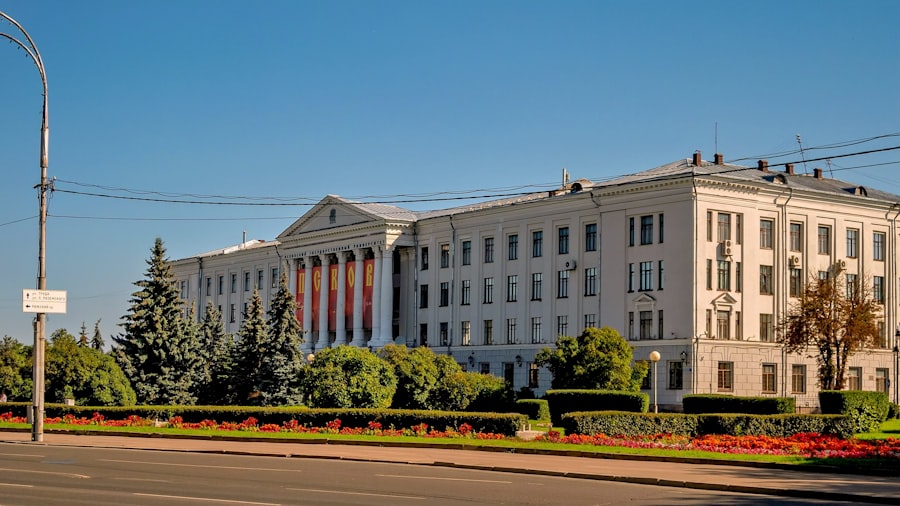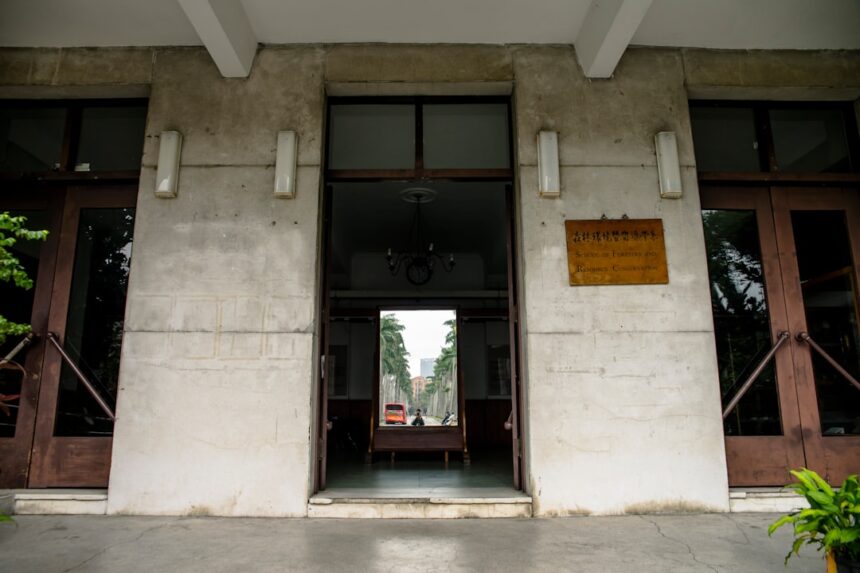Legal precedent serves as a cornerstone of judicial systems, guiding the interpretation and application of laws based on previous court decisions. In the context of military tribunals, which are specialized courts established to try military personnel or civilians for offenses related to military law, the role of legal precedent becomes particularly significant. These tribunals operate under a distinct set of rules and procedures, often diverging from those of civilian courts.
The interplay between legal precedent and military tribunals raises critical questions about justice, fairness, and the protection of rights, especially in times of conflict or national emergency. Military tribunals have a long and complex history, often reflecting the political and social climates of their respective eras. Their establishment and operation are influenced by both domestic law and international norms, making the understanding of legal precedent in this context essential.
As nations grapple with issues of security and justice, the evolution of legal precedent within military tribunals continues to shape their legitimacy and effectiveness. This article will explore the origins, historical usage, modern applications, and ongoing controversies surrounding military tribunals, as well as the impact of legal precedent on their functioning.
Key Takeaways
- Military tribunals have a long history and have been used in various forms throughout different periods of time.
- The use of military tribunals has evolved over time and has been influenced by legal precedent and international law.
- The United States has a complex relationship with military tribunals, with legal precedent playing a significant role in shaping their use and impact.
- Challenges and controversies surrounding military tribunals have raised questions about their fairness and adherence to legal precedent.
- The future of legal precedent and military tribunals will continue to be shaped by evolving international law and ongoing challenges to their use and impact.
The Origins of Military Tribunals
The concept of military tribunals can be traced back to ancient civilizations, where military leaders often held the authority to adjudicate matters involving their troops. In these early instances, the need for swift justice in times of war necessitated a separate judicial process that could operate outside the constraints of civilian law. The Roman Empire, for example, employed military courts to handle cases involving soldiers and issues of military discipline.
This practice laid the groundwork for future military judicial systems, emphasizing the necessity of maintaining order and discipline within armed forces. As societies evolved, so too did the structure and function of military tribunals. The establishment of formalized military justice systems began to take shape during the Enlightenment period, when legal scholars began advocating for more structured approaches to military law.
The British Army’s Articles of War, enacted in the 18th century, marked a significant development in this regard, providing a codified set of rules governing military conduct and the adjudication of offenses. These early frameworks not only established the legitimacy of military tribunals but also highlighted the tension between military necessity and individual rights—a theme that would persist throughout history.
The Use of Military Tribunals in Early History

In early history, military tribunals were often employed during times of war or civil unrest to address offenses that threatened national security or military order. For instance, during the American Revolutionary War, the Continental Congress authorized military courts to try cases involving desertion and other crimes that undermined the war effort. These tribunals operated with a sense of urgency, reflecting the dire circumstances faced by fledgling nations striving for independence.
The decisions made by these courts were often swift and final, underscoring the belief that maintaining military discipline was paramount. Similarly, during the Napoleonic Wars, various European nations utilized military tribunals to deal with issues ranging from espionage to insubordination. The trials conducted during this period were characterized by their expediency; however, they also raised concerns about fairness and due process.
Critics argued that the lack of established legal standards often led to arbitrary judgments and harsh penalties. Despite these criticisms, military tribunals continued to be viewed as necessary instruments for maintaining order in chaotic times, illustrating the ongoing struggle between justice and expediency in military contexts.
Military Tribunals in Modern Times
| Country | Year Established | Legal Basis | Use in Modern Times |
|---|---|---|---|
| United States | 2001 | Military Commissions Act | Used for prosecuting terrorism-related cases |
| Israel | 1948 | Military Justice Law | Used for trying security-related offenses in military courts |
| Russia | 1993 | Military Code of the Russian Federation | Used for trying military personnel for criminal offenses |
In modern times, the use of military tribunals has evolved significantly, particularly in response to global conflicts and terrorism. The aftermath of World War II saw a notable shift in how nations approached military justice, with the establishment of international military tribunals to hold war criminals accountable for their actions. The Nuremberg Trials exemplified this trend, as they sought to address atrocities committed during the war while setting important precedents for international law.
These trials underscored the principle that individuals could be held accountable for crimes against humanity, regardless of their official capacity. In more recent years, the rise of terrorism has prompted nations to revisit the role of military tribunals in addressing security threats. Following the September 11 attacks in 2001, the United States established a series of military commissions to try individuals accused of terrorism-related offenses.
This marked a significant departure from traditional civilian judicial processes and sparked intense debate over the rights of defendants and the legitimacy of such tribunals. Critics argued that these commissions lacked transparency and due process protections typically afforded in civilian courts, raising fundamental questions about justice in a time of crisis.
Legal Precedent and Military Tribunals in the United States
In the United States, legal precedent plays a crucial role in shaping the operation and legitimacy of military tribunals. The Supreme Court has addressed various aspects of military justice over the years, establishing key rulings that have influenced how these tribunals function. One landmark case is Ex parte Milligan (1866), where the Court ruled that civilians could not be tried by military tribunals when civilian courts were available.
This decision reinforced the principle that legal protections should extend even in times of war, emphasizing the importance of due process. Another significant case is Hamdan Rumsfeld (2006), which challenged the legality of military commissions established by the Bush administration to try detainees at Guantanamo Bay. The Supreme Court ruled that these commissions violated both U.S.
law and international treaties, reaffirming that even in matters of national security, legal precedent must be respected. Such rulings highlight how legal precedent serves as a check on executive power, ensuring that military tribunals operate within established legal frameworks while safeguarding individual rights.
The Impact of Legal Precedent on Military Tribunals

The impact of legal precedent on military tribunals cannot be overstated; it shapes not only their structure but also their perceived legitimacy in the eyes of both domestic and international audiences. Precedents set by landmark Supreme Court cases have established essential guidelines regarding due process, fair trial rights, and the treatment of detainees. These legal standards serve as benchmarks against which current practices can be measured, ensuring that military tribunals do not devolve into arbitrary systems devoid of accountability.
Moreover, legal precedent influences public perception and trust in military justice systems. When courts uphold principles of fairness and justice within military tribunals, it fosters confidence among citizens that their rights will be protected even in times of crisis. Conversely, when precedents are disregarded or undermined, it can lead to widespread skepticism about the integrity of these institutions.
Thus, maintaining adherence to established legal precedents is vital for ensuring that military tribunals are viewed as legitimate mechanisms for delivering justice rather than tools for political expediency.
Challenges to Legal Precedent in Military Tribunals
Despite the importance of legal precedent in guiding military tribunals, challenges frequently arise that threaten to undermine established norms. One significant challenge is the tension between national security concerns and individual rights.
This dynamic raises critical questions about how far states can go in curtailing rights in pursuit of security objectives. Additionally, evolving interpretations of legal precedents can create uncertainty within military justice systems. As societal values shift and new threats emerge, courts may revisit previous rulings or establish new precedents that alter the landscape of military law.
This fluidity can lead to inconsistencies in how military tribunals operate and may result in confusion regarding defendants’ rights. Navigating these challenges requires a delicate balance between upholding legal principles and addressing contemporary security concerns.
Controversies Surrounding Military Tribunals
Military tribunals have long been mired in controversy due to their perceived lack of transparency and fairness compared to civilian courts. Critics argue that these specialized courts often operate under different standards that can compromise defendants’ rights. For instance, issues such as limited access to evidence or restricted legal representation have raised alarms about whether defendants receive a fair trial.
Such concerns are particularly pronounced in cases involving terrorism-related charges, where public sentiment may favor expedited justice over thorough legal processes.
In some instances, governments may utilize these courts as tools for political gain or to sidestep accountability mechanisms present in civilian judicial systems.
This politicization can further erode public trust in military justice processes and raise ethical questions about their legitimacy. As debates continue over the appropriate role of military tribunals in contemporary society, addressing these controversies remains essential for ensuring that justice is served fairly and equitably.
The Evolution of Legal Precedent in Military Tribunals
The evolution of legal precedent within military tribunals reflects broader societal changes and shifts in legal thought over time. As notions of justice evolve alongside advancements in human rights discourse, so too do expectations regarding how military justice should be administered. Historical precedents have laid important foundations; however, contemporary challenges necessitate ongoing reassessment and adaptation to ensure that legal standards remain relevant.
In recent years, there has been a growing recognition of the need for greater transparency and accountability within military tribunals. Calls for reform have emerged from various quarters—legal scholars, human rights advocates, and even some members within the armed forces—demanding adherence to principles that uphold fairness while addressing security concerns effectively. This evolution signifies an acknowledgment that while national security is paramount, it should not come at the expense of fundamental rights enshrined in both domestic law and international treaties.
The Role of International Law in Military Tribunals
International law plays a pivotal role in shaping how military tribunals operate across different jurisdictions. Treaties such as the Geneva Conventions establish essential standards for humane treatment during armed conflict and outline protections for individuals facing trial under military jurisdiction. These international norms serve as guiding principles for nations seeking to balance security needs with respect for human rights.
Furthermore, international human rights law has increasingly influenced domestic practices regarding military justice systems. As global awareness surrounding human rights issues grows, countries are compelled to align their practices with international standards or face scrutiny from both domestic constituencies and international bodies. This interplay between domestic law and international obligations underscores the importance of adhering to established legal precedents while navigating complex geopolitical landscapes.
The Future of Legal Precedent and Military Tribunals
The future of legal precedent within military tribunals remains uncertain as nations grapple with evolving security threats and changing societal expectations regarding justice. While historical precedents provide valuable guidance for navigating contemporary challenges, ongoing debates surrounding fairness and accountability will continue to shape how these specialized courts function moving forward. As governments seek effective means to address national security concerns without compromising individual rights, striking a balance between expediency and justice will be paramount.
Ultimately, fostering public trust in military tribunals requires a commitment to upholding established legal precedents while remaining responsive to contemporary realities. By prioritizing transparency, accountability, and adherence to both domestic law and international norms, nations can work towards ensuring that military justice systems serve as legitimate mechanisms for delivering justice rather than instruments for political expediency or repression. As history has shown, the evolution of legal precedent within military tribunals will continue to reflect broader societal values—an ongoing dialogue between security imperatives and fundamental human rights that defines our collective pursuit of justice.
In exploring the intricate dynamics of legal precedent in military tribunals, one can gain valuable insights from related discussions on the topic. A pertinent article that delves into the complexities and historical context of military tribunals can be found on the website “In The War Room.” This article provides a comprehensive analysis of how legal precedents have shaped the functioning and decisions of military tribunals over the years. For a deeper understanding, you can read the full article by visiting this link.
WATCH THIS! 😱The Nazi Trial America Never Wanted You To See 😱
FAQs
What are legal precedents in the context of military tribunals?
Legal precedents in the context of military tribunals refer to previous court decisions and rulings that serve as a guide for future cases. These precedents help to ensure consistency and fairness in the application of military law.
How do legal precedents impact military tribunals?
Legal precedents play a crucial role in shaping the decisions and outcomes of military tribunals. They provide a framework for judges and legal professionals to interpret and apply the law in a consistent manner.
What is the significance of legal precedents in military tribunals?
Legal precedents help to uphold the principles of justice and fairness in military tribunals by providing a basis for decision-making. They also contribute to the development of military law and the evolution of legal standards within the military justice system.
Can legal precedents from civilian courts be applied to military tribunals?
In some cases, legal precedents from civilian courts may be considered in military tribunals, especially when the issues at hand are similar. However, military tribunals also have their own set of legal precedents and standards that are specific to the military justice system.




